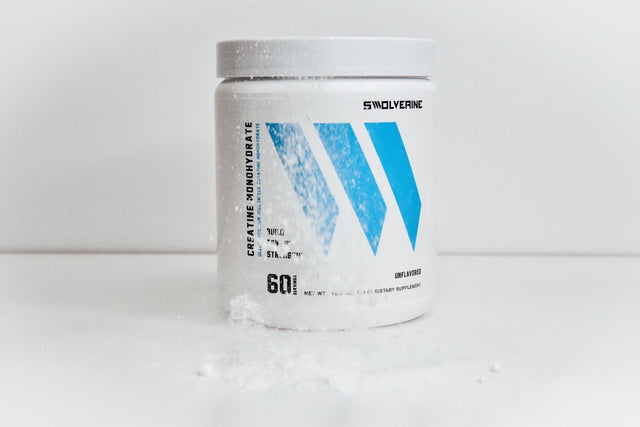Obesity affects a staggering majority of the American population. According to the CDC 71.6% of all Americans age 20 and above are overweight. While overeating is the major cause of becoming obese, undereating is a huge contributing factor to staying overweight, which is often overlooked. While we are all slaves to the hustle and bustle of our daily schedule, undereating is a common occurrence amongst most people. Signs that you’re not eating enough can present themselves through weight gain, muscle loss, lethargy and have a range of other adverse effects on your wellbeing.
We are going to take a more in-depth look at some of the signs of undereating so you can maintain a healthy weight and get back on track to your goals.
Why You Are Not Eating Enough Calories
Reasons for undereating often fall within two categories; undereating habitually, or undereating intentionally. Those who under eat habitually, have trained their body to find undereating as a normal behavior. Due to the daily grind, they work against themselves and forget to eat, or completely ignore their hunger cues, because they are too busy. Those who under eat intentionally have been trained to under eat, from years of restrictive diets, popular opinion, and misinformation from their general healthcare providers [remember physicians are not nutritionists]. Every single person is unique in the fact, that they require different nutriment than others. At the macro level, there are common factors that will help anyone, and everyone lose weight, such as eating lean proteins, quality complex carbs, and healthy fats. Yet at the micro level, we all require different nutrients, vitamins, and minerals. No one person is the same. That is why it is so important to have a nutrition plan specifically catered to you and your needs, because without one, you will never reach your full potential and fall short of the goals you set for yourself.
Dipping below 1200 calories per day, can have a detrimental effect on your health and weight. “I’ve worked for 4 years now as a fitness trainer and nutrition coach, reviewing food log after food log. The most common and apparent issue (especially amongst women), has been not eating enough. Most clients trying to lose weight eat between 900 to 1,200 calories, per day, which will have the opposite effect,” says Owner/Found of The Swole Kitchen Alexandria Best.
Cutting calories to unsustainable levels, will help you lose a few pounds, but will also create unwanted side effects, which will ultimately lead to weight gain.
Signs You’re Not Eating Enough
1. Low Energy
Calories are energy, and without enough calories, you won’t have much energy. If you’ve been exhausted for weeks on end despite the quality and duration of your sleep it could be time to re-evaluate your diet and eating habits. Low energy is a definite sign of not eating enough. The USDA guidelines range between 1600-2400 calories per day for adult women and 2,000-3,000 calories per day for men. Keep in mind, that active individuals and athletes demand more of everything, and will need more calories to help fuel performance and recovery than the average person. Focusing on calories, however, is not a healthy habit to develop. Instead put more emphasis on the quality of food you eat, rather than the quantity. Incorporating high quality lean protein, complex carbohydrates, and healthy fats, will ensure you get the nutrients your body needs to reach your goals and your brain to fire on all cylinders. You’d be surprised at how much more you can eat, when you’re incorporating clean eating habits.
If you’re not sure of how many calories to eat, what to eat, or what your body needs to meet your energy demands, sign up for a free consultation with a certified nutrition coach at The Swole Kitchen.
2. You’ve Hit A Weight Loss Plateau
Drastically reducing your calories, may not help you lose the weight you want long-term. Most diets and diet cultures focus on reducing calories, which is not the best approach. Reducing energy intake, can often counteract your intentions, and result in slowed metabolism and sweeping shifts in hormonal levels. Studies have shown that long-term reduction of calories, results in cognition changes, and the nature and type of food consumed [R].When you lose weight because you cut calories, often times, the quality of food diminishes. A calorie focused mentality will often result in eating packaged goods full of refined sugar and simple carbs, which will increase blood glucose, and aid in creating more body fat.
RELATED ARTICLE Metabolic Reset: How To Reset Your Metabolism To Burn More Body Fat
Changes in metabolic rate occur when you do not eat enough. When you consume a large portion of calories in one meal, then subsequently don’t eat for many hours, the food you ingested is stored for prolonged energy as body fat, because your body anticipates starvation. In contrast, if calorie intake is reduced, the body compensates by decreasing its metabolic rate or stimulating food intake. Therefore, eating meals throughout the day with a balance of portion and calories, will help increase your metabolic rate and overcome a weight loss plateau [R].
3. Loss Of Muscle Mass
Generally a loss of muscle mass, is more noticeable with active individuals. If you’re trying to optimize body composition by restricting your calories, often times it will result in muscle loss. Your body requires more macronutrients, such as protein and carbohydrates to build and rebuild muscle mass. Attempting to lose weight by not eating, will result in a loss of muscle mass. The body typically uses glycogen for energy first, body fat, then ultimately muscle mass. But if you don’t have much fat to burn, you’ll skip the body fat altogether and go straight to expending muscle tissue for energy. Signs of not eating enough can show up during training sessions making you feel sluggish, and lethargic leading to harder and agonizing workouts. If you’re losing weight but your body fat percentage is staying the same, it’s probably a sign you’re losing muscle.
RELATED ARTICLE How To Burn Body Fat And Build Muscle Mass
4. Constipation
Another sign you’re not eating enough, is constipation. If you’re not eating enough food, chances are you are definitely not eating enough fiber. According to the “Dietary Guidelines For Americans In 2015” on average, Americans are only consuming 15 grams of fiber per day, due to a low intake of fruit, vegetables, and total grains [R]. Typically, you should be getting at least 25-30g of fiber per day, or 14 grams for every 1,000 calorie increment in your diet. That means on average, most of us are only getting half the amount of fiber we really need. And if you’re only getting half the amount of calories you need to maintain a healthy weight, you’re getting closer to around 8-10g of fiber per day.
5. Dehydration
When you don’t eat enough, chances are you’re drinking enough water either. Your body frequently confuses thirst with hunger and when you ignore hunger cues, you can also be ignoring cues for thirst. Drinking enough water is crucial to maintain hydration, and also help with constipation since water assists fiber in moving food through your GI tract. Food also contains a number of vitamins and minerals such as sodium, potassium, and magnesium which regulate hydration levels. If you find yourself constantly thirsty, then it’s probably a sign you’re not eating enough.
6. Irritability
Hanger is a real thing. When your mind and body are not nourished with essential nutrients, you can become irritable and stressed, which is a result from low blood sugar. Studies have shown that low glucose levels are correlated with aggression and violent behavior [R]. If your body is telling you it’s hungry, then please for the sake of those around you, get a burrito and calm down.
Signs You’re Not Eating Enough: Takeaway
If you feel like you’re exhibiting any or some of these signs of not eating enough, then the easiest solution is to journal what you eat. Journaling your food, whether on a notepad or in an app (like My Fitness Pal) is a great way to see how many calories or grams of each macronutrient (protein, carbs, and fat) you’re eating each day. Logging for a week or two proves to be a nice little check-in with your habits, behaviors, and with yourself on how much you’re eating.
As you monitor your food intake and make adjustments, pay special attention to your body’s cues and what it is trying to tell you. How did that food or meal make you feel? Did you overrule your hunger cues, telling yourself you’re not hungry while your stomach is growling? Your body is a magnificent thing and will let you know how much you need to eat, so as long as you’re willing to listen to it. Even if you eat all the right things, the key to it all is to eat enough.
Slashing your calorie intake to unhealthy lows will inevitably slow your metabolism and create unhealthy and unsustainable eating habits, which will result in weight gain. The key is to create a caloric deficit, while eating enough food to maintain a normal functioning metabolism. Add a training program to your daily routine. You’ll burn an extra 400-500 calories, which will put you in place for healthy and sustainable weight loss. Journal your food for a few days to get a better idea of what and how much you're truly eating. You'll be surprised at what you find out. If you’re not sure of what, when, or how to eat, then hire a nutrition coach. The worst thing is to go through the journey alone, and waste your time and money without knowing what the hell you’re really doing. Get it right the first time and learn how to take control of your nutrition and health.
Need Help With Optimizing Your Diet And Nutrition Plan To Finally Get The Results You've Been Waiting For?
SWOLVERINE IS AN ENDURANCE ATHLETE AND ACTIVE LIFESTYLE BRAND. MADE FOR THE ELITE ATHLETE, AND THE STRONG-WILLED OUR PRODUCTS WERE DESIGNED TO FUEL YOUR ATHLETIC PERFORMANCE. WE PERFORM WHEN YOU PERFORM.
We believe that everyone can optimize not only their athletic performance but their human potential. The way we believe we can optimize performance is through transparency, clinically effective doses, and clinically proven ingredients with evidence-based outcomes. We provide the nutrients you need to power your active lifestyle.
References
DeWall, C Nathan et al. “Sweetened blood cools hot tempers: physiological self-control and aggression.” Aggressive behavior vol. 37,1 (2011): 73-80. doi:10.1002/ab.20366
Benton, David, and Hayley A Young. “Reducing Calorie Intake May Not Help You Lose Body Weight.” Perspectives on psychological science : a journal of the Association for Psychological Science vol. 12,5 (2017): 703-714. doi:10.1177/1745691617690878








